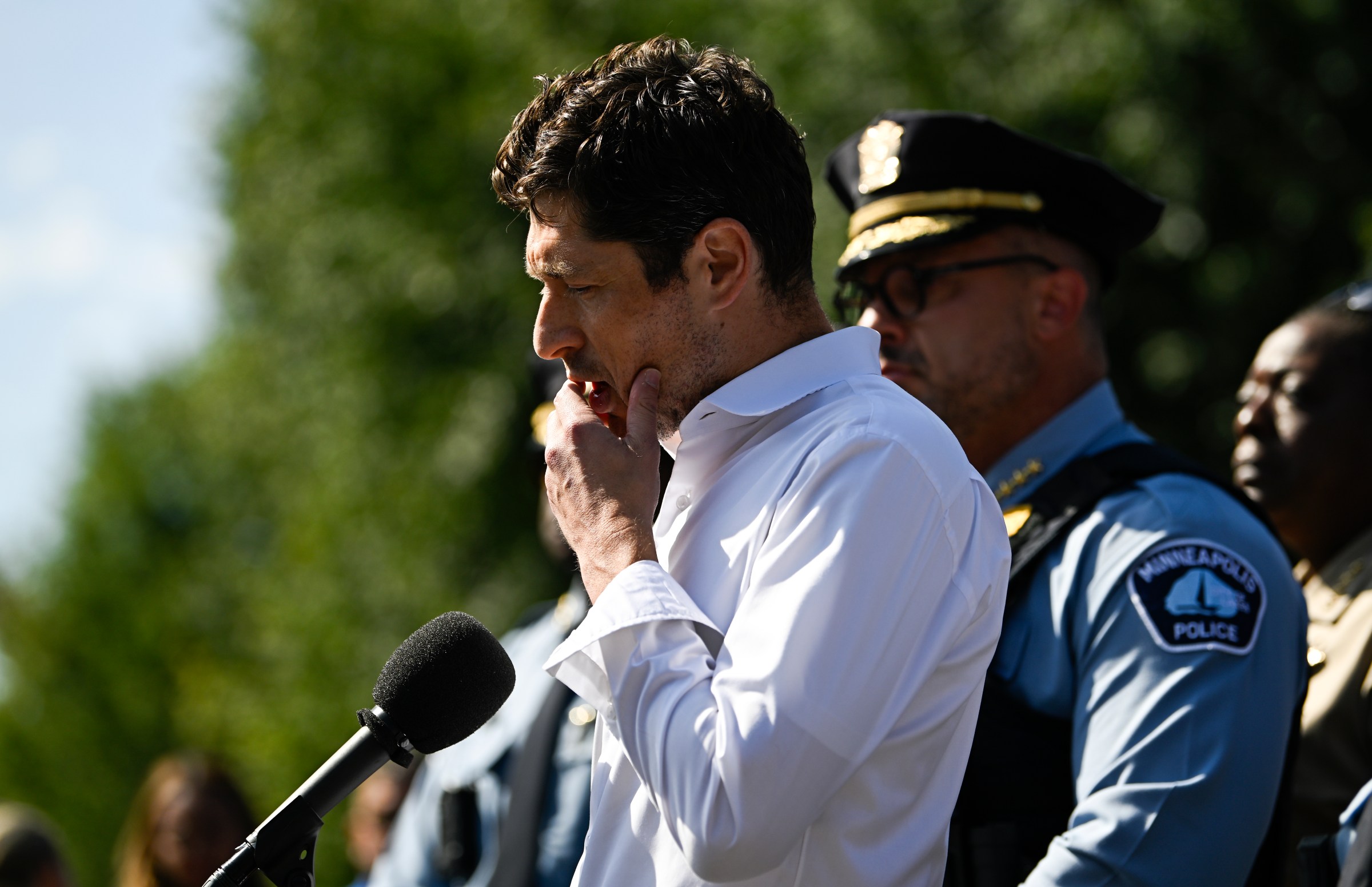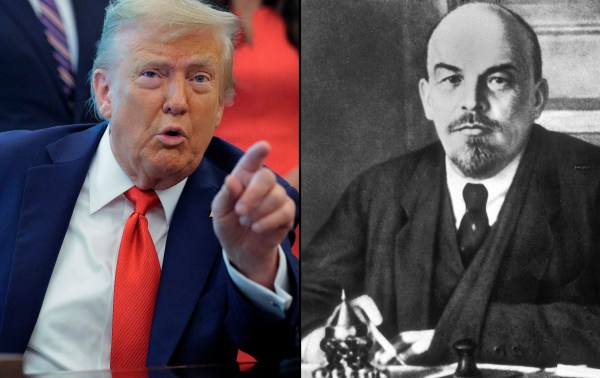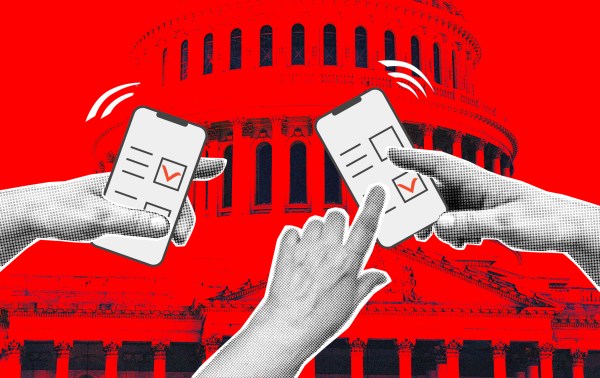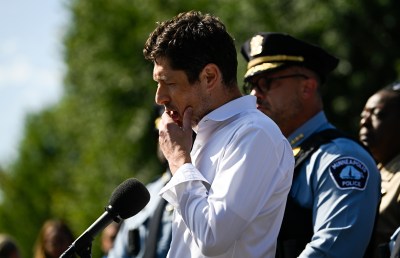“Prayer is not freaking enough,” MSNBC host and former Biden press secretary Jen Psaki declared on X after the horrifying church shooting in Minneapolis on Wednesday. “Prayers does not end school shootings. prayers do not make parents feel safe sending their kids to school. Prayer does not bring these kids back. Enough with the thoughts and prayers.”
Minneapolis Mayor Jacob Frey expressed similar sentiments. “Don’t just say this is about thoughts and prayers right now,” he said during an impassioned press conference on Wednesday. “These kids were literally praying.”
This contempt for offering “thoughts and prayers” after a mass shooting has been something of an automatic rejoinder on the progressive left for a while. And I think it’s a grave mistake.
Before I explain why, let me be clear that I have immense sympathy for the sincere frustration and anger that motivates such outbursts. Words fail to express how much I agree with the proposition that these atrocities should not happen. It’s such an agonizingly inadequate thing to say, but parents should not endure the horror of wondering whether their child was one of the kids slaughtered while at church. The feeling that your child is in peril, that doubt, that bottomless void of fear and worry that vacuums the soul until you feel like you will implode—even that cannot compare to the horror of actually losing a child to such senseless and evil violence. I don’t know that from experience, thank God, but as a parent, my imagination can get me to the precipice of that abyss.
That mass shootings are too common is such an irrefutably and infuriatingly obvious opinion that it feels pathetic even to offer it. Any number of mass shootings above zero is, in a very real sense, intolerable. Indeed, any number of murders is intolerable.
But societies—all societies—“tolerate” some number of murders. That doesn’t mean societies—decent ones, at least—tolerate murderers. But no society does everything possible to prevent the possibility that some murderer will succeed. To do so would require measures that few people, regardless of ideology, would accept. A society that made it impossible to murder would not be free.
I think that, after calm consideration, nearly everyone would agree with this observation. But this observation doesn’t take us very far. The people who rain contempt on the offering of thoughts and prayers aren’t demanding Orwellian intrusions such as a panopticon state or a bureau of pre-crime. They are demanding that the problem of guns be dealt with.
I think we do have a “gun problem” in this country, but not necessarily in the exact way the people who use the term do. But I don’t want to get into that. Suffice it to say that how to define that problem—never mind how to address it—is the subject of intense debate. My point here isn’t to engage in that debate. It is merely to defend the natural, human, and decent desire to express sympathy, empathy, and support for people enduring horrible tragedies.
Imagine your friend’s home was destroyed by a tornado, your co-worker’s spouse was diagnosed with cancer, or anyone you know experienced some other kind of misfortune. It would be right, proper, and morally obligatory to offer the kind of support that is captured by phrases like, “You’re in my thoughts and prayers.” It strikes me as a good thing when strangers have the same response.
Indeed, when the recent floods in Texas swept away dozens of children, millions offered messages of support on social media or in person. It’s simply a decent thing to do. But when natural disasters strike, few say in their aftermath, “Don’t give me your thoughts and prayers, do something about flooding.” (The exception, of course, is when people try to make everything about climate change).
No one can prevent floods, hurricanes, or earthquakes, of course, but policymakers can do all sorts of things to make them less deadly. Debates about what should have been done—creating better early warning systems, crafting more resilient housing standards, improving zoning codes—are all legitimate. But it’s pretty much only in the aftermath of mass shootings that people say, “Spare me your ‘thoughts and prayers.’”
There’s a certain arrogance at work here. As far as I can tell, Jen Psaki didn’t lose a loved one in Minneapolis. Who is she to say that we shouldn’t offer moral support and sympathy to those who did? She would never say such a thing in the wake of a natural disaster. “Spare me your talk about thoughts and prayers; we need better building codes,” is not a familiar refrain—and for good reason.
I know that mass shootings are not natural disasters. Murderers are people, and their actions involve agency and will.
But this is not a relevant distinction. All laws can do is govern human behavior. Building codes do not regulate the properties of concrete and steel; they define how builders can use concrete and steel. Forest policies do not police the trees; they dictate how rangers manage the forest. We cannot, King Canute-like, pass laws to govern objects or forces that cannot grasp the law. The law—all of it—is about regulating humans, not things. And you can drill down on almost any tragedy, natural or manmade, and construct an argument for how it could have been prevented or mitigated by human action.
The fundamental problem with condemning “thoughts and prayers” is that it tries to snuff out a basic decency and skip straight to a policy argument. It suggests that people cannot show the most minimal kindness and expression of social solidarity to their fellow citizens unless they agree with their preferred policies.
Again, my point here is not to debate the merits of any particular policy proposal. On that front, the details matter—and so does the Constitution. But it is not clear to me that hectoring and shaming people who offer their thoughts and prayers in heartfelt sympathy gets the hectorers and shamers one inch closer to their preferred outcome.
Indeed, one could argue the reverse. If you’ve known someone with cancer, the first step toward wanting to mobilize for cancer research might start with the basic expressions of sympathy and empathy. That opens the door for the next steps. Asking them, “Is there anything I can do?” Telling them, “I’m here for you.” And, finally, if a political agenda is your goal, organizing for some larger cause.
It’s not clear to me that the same does not hold for victims of mass shootings or the public policies that might better combat them. Telling someone to shut up doesn’t win an argument. Shaming someone for caring doesn’t increase the amount of concern for our fellow citizens. Contempt only breeds more contempt.
Whatever the right policy responses are for dealing with these intolerably frequent horrors may be, they all begin with more concern for our fellow humans afflicted by them.







Please note that we at The Dispatch hold ourselves, our work, and our commenters to a higher standard than other places on the internet. We welcome comments that foster genuine debate or discussion—including comments critical of us or our work—but responses that include ad hominem attacks on fellow Dispatch members or are intended to stoke fear and anger may be moderated.
With your membership, you only have the ability to comment on The Morning Dispatch articles. Consider upgrading to join the conversation everywhere.